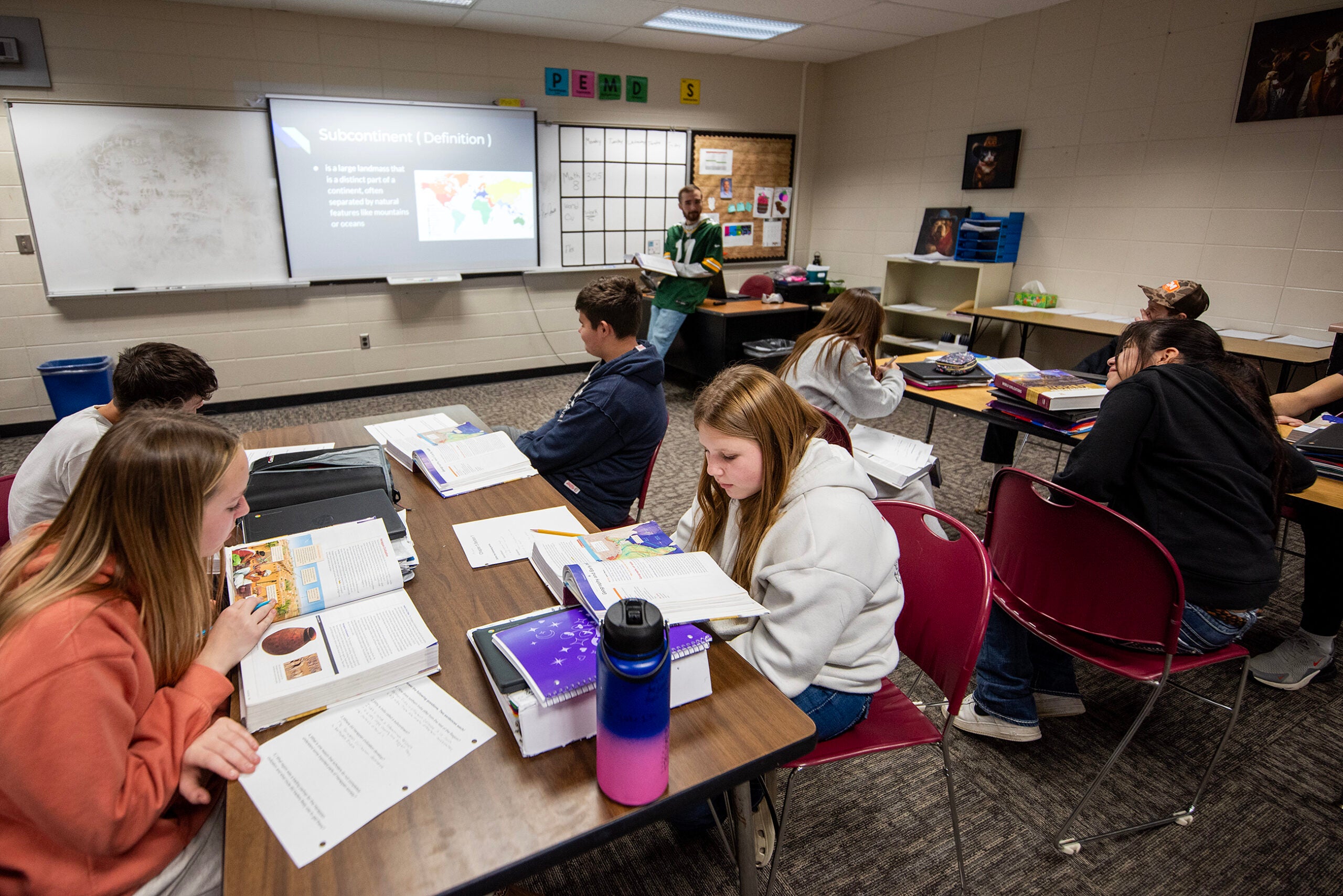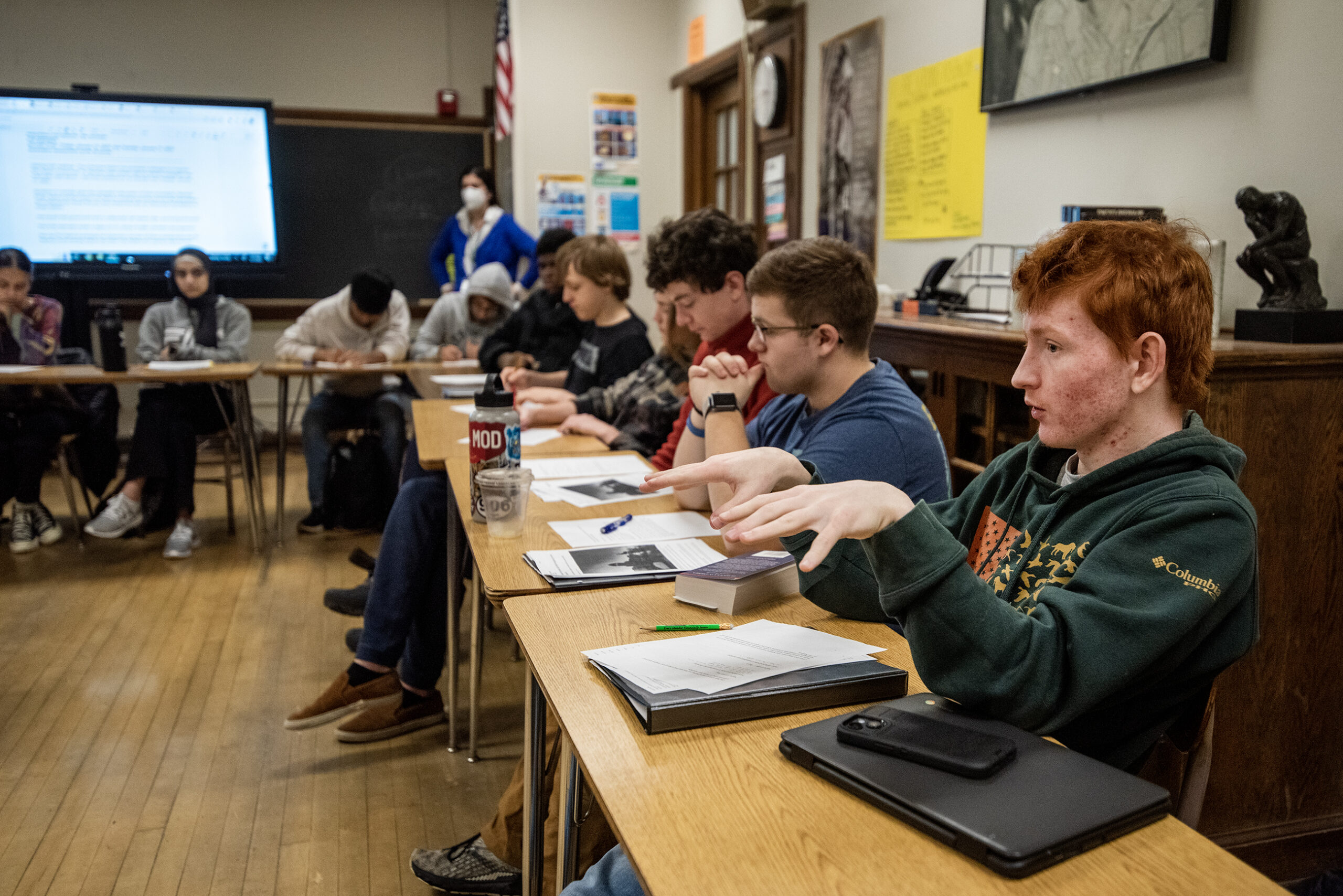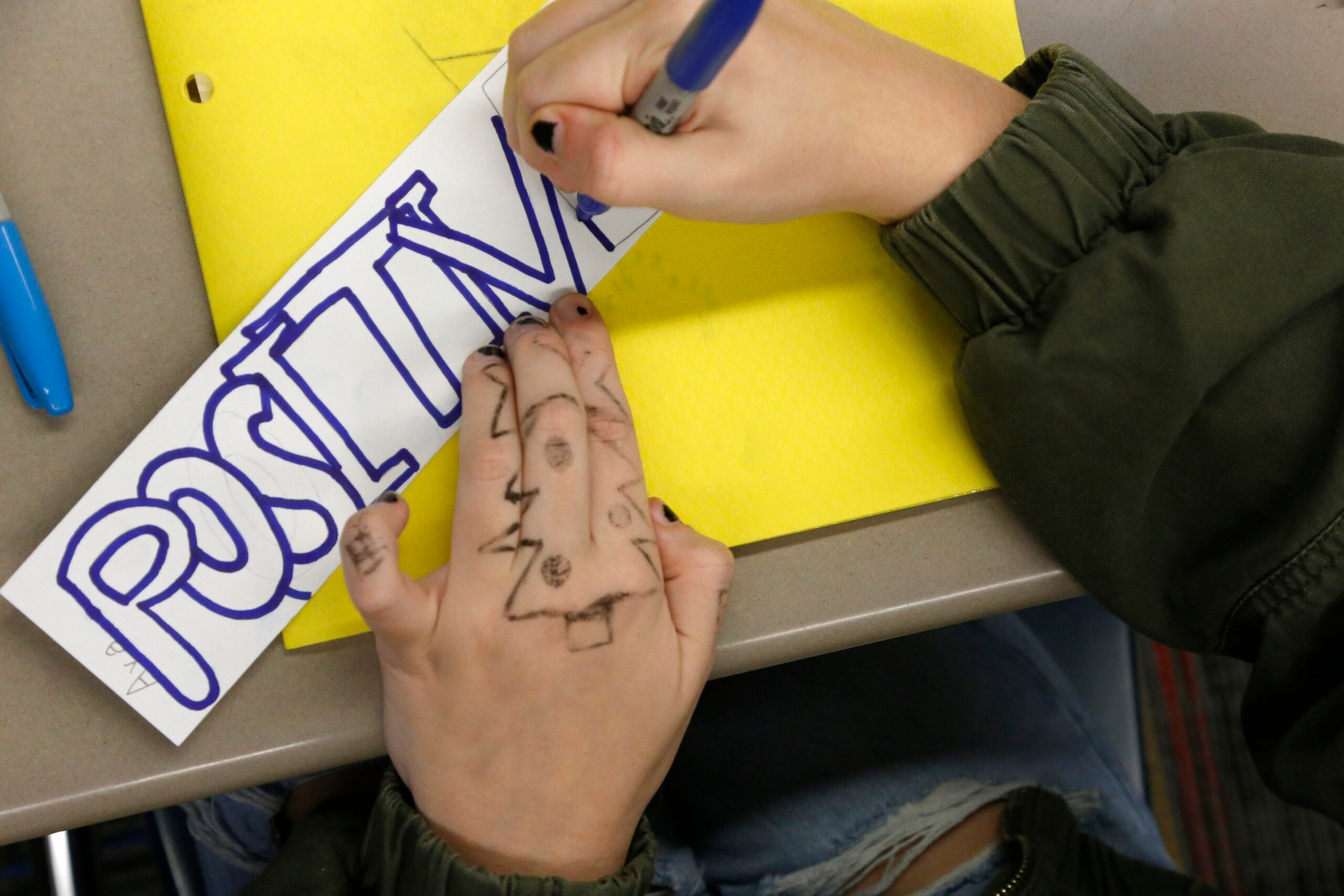This week, the Republican-led budget committee cut 38 items Gov. Tony Evers’ proposed education budget, including more than $276 million for mental health services in schools.
One of the biggest cuts was a plan that would have provided school districts and independent charter schools with money to create evidence-based mental health programs.
School districts currently rely heavily on grant funding to provide mental health care for students.
News with a little more humanity
WPR’s “Wisconsin Today” newsletter keeps you connected to the state you love without feeling overwhelmed. No paywall. No agenda. No corporate filter.
During a March 28 hearing of the Assembly Committee on Mental Health and Substance Abuse Prevention, Linda Hall, director of the state Office of Children’s Mental Health, testified that school districts need a set funding source for mental health services. She said 75 percent of kids who access mental health treatment get it at school.
Evers increased grant funding in the 2021-23 budget from $6.5 million to $10 million. In 2019-20, 106 grants were awarded to 97 individual school districts and another eight consortia representing an additional 23 districts and one independent charter school.
But Hall said the grant funding is not equal across districts. Districts that have grant writers or programs already in place often benefit.
“This is a special burden for rural schools that don’t have as many people on staff to help them write these grants,” Hall said. “We need to have more sustainable funding.”
Monica Caldwell, a school mental health consultant with the Department of Public Instruction, said school mental health grants have been critical and about half of the school districts are making gains. But some school districts have faced barriers in obtaining the grants.
“And we now have a situation where some school districts are growing really well in this area and some are not,” Caldwell said. “This has created some inequities for our kids. And these inequities are amplified for students of color and our LGBTQ students.”
Caldwell and Hall pointed to the urgency of the situation by citing the Youth Risk Behavior Surveillance System survey. Released last year, the survey detailed alarming trends for youth mental health, including showing nearly 1 in 3 high school students have seriously considered attempting suicide — up nearly 60 percent from a decade ago.
“This is not pandemic related, these trends have been growing for 10 years,” Hall said, adding that students are worried about being successful in school, their safety and financial issues at home.
“Social media also makes a big difference,” Hall said. “It’s no coincidence that the trends started once kids got phones in their hands and their parents have phones, too.”
Evers also proposed spending $30 million for school based mental health professionals and changing current law to extend “pupal services professional” beyond social workers to include a school counselor, school social worker, school psychologist or school nurse. Republicans cut the plan.
Additionally, Evers wanted to increase peer-to-peer suicide prevention grants from $1,000 to $6,000. He also wanted to expand current law relating to grants for bullying prevention so that training would be provided for students in grades K-12 rather than K-8. Both proposals were cut.
The Republican-led Legislature will rewrite the education budget. It is unclear if mental health services will be readdressed. Assembly Speaker Robin Vos, R-Rochester, and Joint Finance Committee Chairs Rep. Mark Born, R- Beaver Dam, and Sen. Howard Marklein, R-Spring Green, did not respond to comment.
State Rep. Robyn Vining, D-Wauwatosa, who serves on the Committee on Mental Health and Substance Abuse Prevention, said democrats have been banned from reintroducing or talking about the budget items that have been cut.
Vining said the Milwaukee County delegation held a round table delegation at the University of Wisconsin-Milwaukee on mental health and are planning another with K-12 students and teachers.
“At a time when Wisconsinites’ mental health across the state is in crisis — all ages, stages, economic statuses, and geographic locations — we need all sides of the aisle to come together and resolve to pass significant mental health investments,” Vining said. “At a time when we have both a massive state surplus, and a tremendous rainy day fund, the Wisconsin Legislature can’t afford to turn its back on the people. Wisconsinites’ mental health is too important.”
Wisconsin Public Radio, © Copyright 2026, Board of Regents of the University of Wisconsin System and Wisconsin Educational Communications Board.







